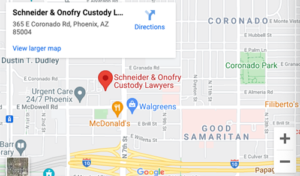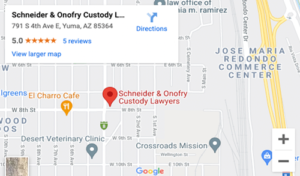YUMA, Arizona. Divorce is hard enough. When couples separate, they often must ask how they’ll support themselves independently. Paying for two separates homes is always going to be more expensive than paying for one home. However, divorce, if you are disabled, can be particularly challenging, especially if you are reliant on your partner for health insurance, financial support, or home health care.
If you are getting divorced, and are disabled, you’ll likely need to figure out how you’ll cover health insurance, how you’ll support yourself independently, and how you’ll receive home health care, if you have been reliant on your spouse to care for you. When one partner has a disability, this can sometimes create a strain on the marriage. Disability and the development of a chronic health condition can adversely impact a marriage. According to the New York Times
, when couples do stay together when one partner has a chronic illness or disability, they may struggle in the marriage. Unfortunately, there aren’t often sufficient resources available to individuals with disabilities. Government disability benefits often provide just enough assistance to keep individuals near the poverty line. Home health care services can be expensive, so sometimes a spouse will take on these tasks.
Research indicates that marriages are at greater risk of ending when one partner becomes disabled or ill. Some couples break up after a partner has a traumatic brain injury. These injuries can change a person’s personality. Other couples break up after a partner develops a physical disability. It can leave one partner performing nursing tasks or unable to share life activities with their loved one the way that they once did.
Other couples might divorce strategically, to protect an ill spouse’s access to disability services and to avoid depleting savings accounts. Many safety net support programs only offer assistance after couples have drained their savings first. This can leave the well partner without money to care for themselves going forward. According to PBS
, if you are considering divorcing a seriously ill or injured spouse to ensure he or she has access to social support services, you may want to talk to a divorce lawyer and accountant first. While divorce might mean your spouse qualifies for certain programs, divorce might also mean that you lose out on important financial benefits as well.
Schneider & Onofry, P.C. are divorce lawyers in Yuma, Arizona
who work with a range of clients who are considering getting divorced. If you are getting divorced and are disabled, our firm can help you ask the tough questions that might arise. We can determine whether you might qualify for alimony, can help connect you with community resources to determine your qualification for additional support programs, and help you understand your rights regarding child custody. Some disabled parents have faced challenges when seeking sole custody of their children. However, the courts should not deny a disabled parent the right to their children. If you have concerns about divorcing with a disability, visit the divorce attorneys at https://www.soarizonalaw.com/
to learn more.
Schneider & Onofry, P.C.
207 W. 2nd St.
Yuma, AZ 85364
928-257-4887 Phone















